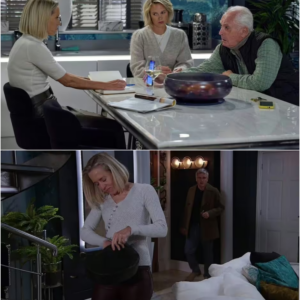66

Let’s not destroy Gregg Wallace (Image: BBC)
Gregg Wallace might not be everyone’s cup of tea, but let’s have a little perspective. The man isn’t Jimmy Savile, and we need to stop treating him as if he’s committed a heinous crime. Yes, his behaviour was awkward, inappropriate, and outdated. Yes, it made people uncomfortable. But does he deserve to have his career and reputation incinerated for a few cringe-worthy jokes? That’s a question worth asking.
I worked closely with Gregg in 2011 as a contestant on MasterChef. I saw the man behind the telly persona, and what struck me wasn’t malice or manipulation, but insecurity. Gregg’s humor was like something out of a Sid James sketch—crude, clumsy, and hopelessly stuck in the past. It wasn’t professional, and it certainly didn’t belong in a workplace setting, especially one involving younger, less powerful staff who may have felt they couldn’t speak up. But it wasn’t predatory. It wasn’t calculated harm.
Let’s not sugarcoat it: Gregg’s jokes were inappropriate. They weren’t funny, and they often crossed the line into toe-curling territory. His attempts at humor likely made people, particularly younger colleagues, feel uncomfortable. In a modern workplace, that’s a serious issue—and rightly so. Everyone deserves to feel respected and safe, and comments like his can chip away at that.
But context matters. From my perspective, Gregg’s behaviour wasn’t malicious but awkward—a middle-aged man stuck in a “dodgy dad joke” mode, fumbling for ways to fill silence and connect with others. He wasn’t weaponizing his humor; he was using it as a crutch, a misguided way to navigate social interactions. This doesn’t excuse his actions, but it does separate them from the kind of calculated, harmful behaviour that has rightfully toppled others in the #MeToo era.
It’s undeniable that society’s tolerance for workplace behaviour like Gregg’s has shifted, and for good reason. What might once have been dismissed as harmless banter is now seen—rightly—as part of a broader culture that can marginalize and alienate. Younger staff, particularly women, often feel unable to challenge such behaviour, especially when it comes from someone in a position of power. That’s a problem that needs addressing, and Gregg’s behaviour deserves to be called out as part of that process.
But here’s the thing: Gregg has already paid a steep price. His career? Gone. His reputation? In tatters. He’s been publicly shamed, and he’s unlikely to bounce back from this. So, what more do people want? Should we pile on until he’s a broken man, just to make a point? There’s a fine line between holding someone accountable and outright destruction, and we’ve crossed it.
The outrage against Gregg isn’t just about his behaviour—it’s about what it represents. His jokes weren’t just awkward; they highlighted a power dynamic where younger, less experienced staff felt they couldn’t speak up. That’s not okay, and it’s a culture that needs to change. But the onus shouldn’t be solely on Gregg to fix it. Workplaces need to be environments where people feel safe to call out inappropriate behaviour in the moment, rather than allowing it to fester until it explodes into a media frenzy.
Blaming Gregg alone ignores the broader systemic issue. Where were his colleagues, his bosses, the people who could’ve taken him aside and said, “Gregg, that’s not okay”? Instead of whispering about his behaviour or tolerating it out of fear or politeness, someone should have stepped in. That’s how you create meaningful change—not by tearing someone down after the fact.
Yes, Gregg Wallace needed to be held accountable. His behaviour made people uncomfortable, and that’s not acceptable in any workplace. But let’s not lose sight of the nuances. Gregg wasn’t abusing his power or scheming to hurt anyone. He was a man out of his depth, unable to adapt to a new cultural standard. That’s not an excuse—it’s a call for balance.
What Gregg did wasn’t harmless, but it wasn’t criminal either. He’s not Harvey Weinstein, and treating him as though he’s a poster boy for systemic abuse undermines the seriousness of real, intentional harm. By all means, hold people accountable, but don’t lump awkward misjudgement in with genuine predation.
Gregg Wallace has lost everything. He’s faced public humiliation, the loss of his career, and the stigma of being labeled inappropriate. That’s a heavy price to pay for someone whose greatest crime was being clueless and outdated. At what point do we allow him, or anyone in a similar position, the chance to reflect, learn, and move forward?
The lesson here isn’t just for Gregg; it’s for all of us. Call out inappropriate behaviour, absolutely—but don’t destroy people for it. Gregg’s story should be a wake-up call about the need for better workplace cultures, where calling out bad behaviour is safe and effective, and where people have the chance to grow without being publicly crucified. Let’s save the pitchforks for those who truly deserve them.





